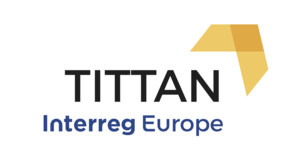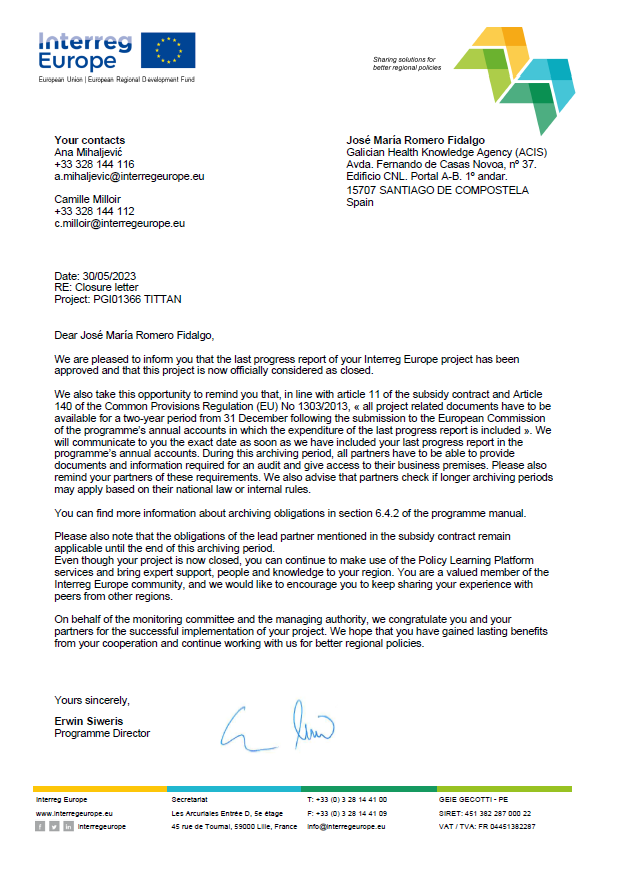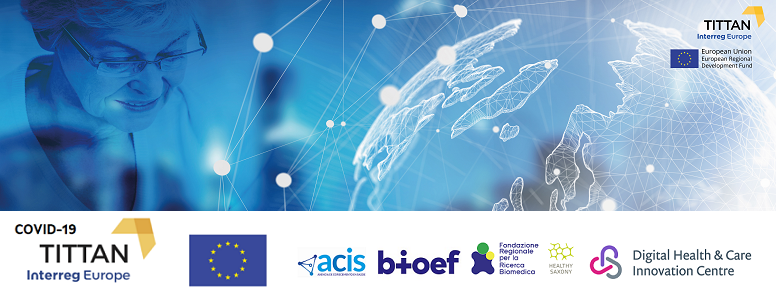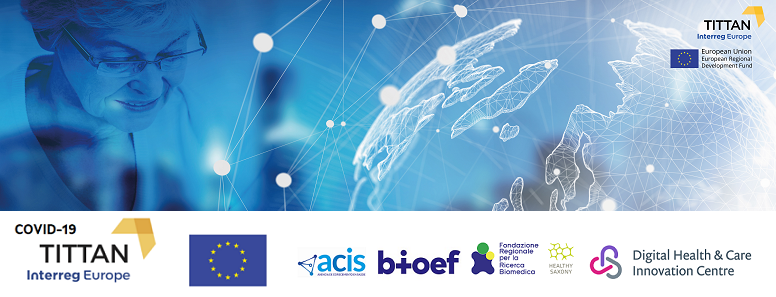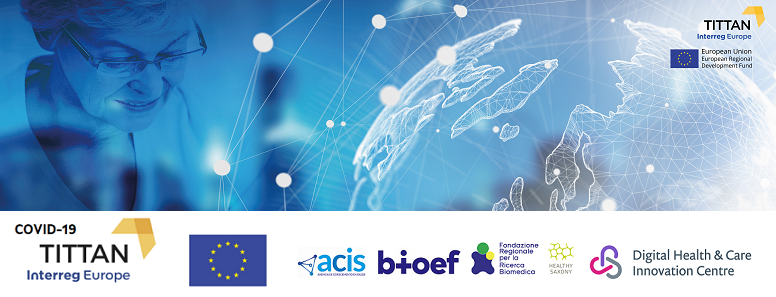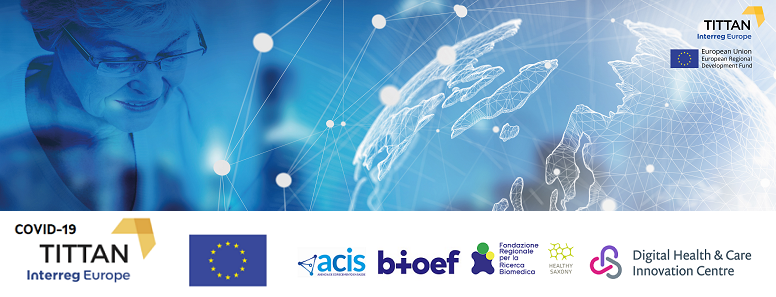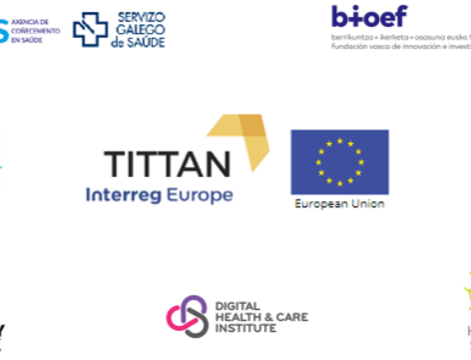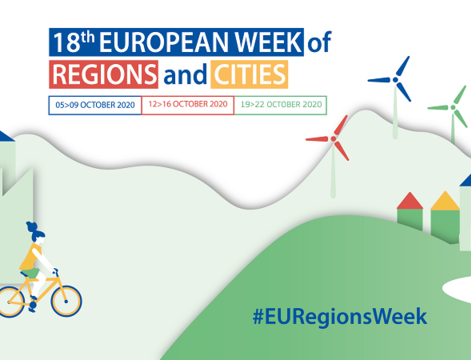- In 2018, out of 133 action plans developed in Interreg Europe projects, only 13 pilot actions were funded.
- The objective of TITTAN is to establish a network of good practices exchange with 7 European regions to promote innovation and technology transfer in the field of health, in diseases and work lines concern ageing primarily.
- The action plan of Galicia consists of the implementation of a health Living Labs network in the health areas, called LABSAÚDE.
ACIS as Lead Partner of the TITTAN project (Translation, Innovation & Technology Transfer in Ageing Network) together with other reference organisations in Europe such as the Basque Foundation for Health Innovation and Research (BIOEF of Basque Country in Spain); the Fondazione Regionale per la Ricerca Biomedica (FRRB, of Lombardy in Italy); the Healthy Saxony, (HS of Saxony in Germany); the Digital Health & Care Institute (DHI of Scotland in the United Kingdom); the Lower Silesian Voivodeship Marshal Office (LSVMO of Lower Silesia in Poland); and the City of Almere in the Netherlands.
The European project financed through the Interreg Europe programme is divided into two phases. The first phase of exchange good practices among partners began in April 2016 and ended in September 2018 with the development of an action plan by each of them. The second phase, which is currently in process, consists of the implementation of the plans developed during phase 1 and it lasts 24 months. The Interreg Europe programme does not fund this project phase, so each partner has to bear the cost of implementing the actions included in the plan with their own resources.
The action plan of Galicia consists of the implementation of a health Living Lab network in the health areas of Galicia, called LABSAÚDE. This initiative tries to transform Galician hospitals and outpatients clinics into real testing environments for innovative solutions as a preliminary step to market access.

The network is based on the quadruple helix model where the Galician health system, industry, academia, and society can work together in a real environment. End users can influence the design of solutions by reducing risk acceptance and streamline the innovation process. Living Labs will achieve a greater dynamism and efficiency of the health system that redounds to better services provided to citizens.
To implement the action plan proposed by ACIS, and approved by the Joint Secretariat of Interreg Europe, ACIS requested the approval and funding of a pilot action to test the Living Lab model in the field of health before its implementation in the health system of Galicia. The approval of this pilot action requires a great effort for the applicant since it is necessary to demonstrate the relevance and impact of this action on society. This is reflected in the reduced number of pilot actions approved by the Secretariat in 2018 when only 13 pilot actions were approved out of 133 action plans developed during that year in Interreg Europe projects. The pilot action developed by ACIS is one of the 13 pilot actions approved and funded. This will enable the region to carry out the necessary and preliminary actions for the implementation of a health Living Lab network through the Galician health system.
